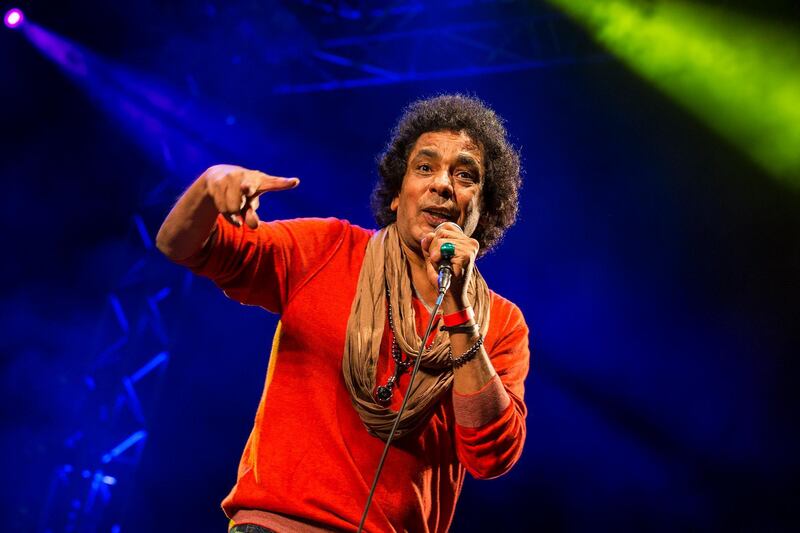Egyptian singer Mohamed Mounir has paid tribute to his country’s police force with a new track.
The veteran artist released Abtal Regala to mark Egypt's National Police Day, which falls annually on February 25.
Translated to mean “the strongest of men”, the song is produced with Mounir’s trademark fusion of Egyptian folk music and summery flamenco guitars.
His smooth tenor, meanwhile, croons lyrics written from the perspective of a citizen, praising the bravery of police officers in the face of daily risk.
"At the first moment of fear, I always find you in front of me. You sacrifice for the sake of your family and siblings,” Mounir sings. “You don't care about the names. And in the depth of the cold, you stand tall to protect our country.”
The song comes with an accompanying video which juxtaposes images of police officers with Mounir singing from a studio.
More patriotic pop music
Abtal Regala is the latest in a batch of new tunes by Mounir.
In December, the singer, nicknamed "The King" owing to his influential four-decade career, released the EP Bab El Gamal.
Consisting of five tracks, the project features collaborations with esteemed Egyptian composers Ahmed Ammar, Osama Al Hendi and Ahmed Hassan Raol.
The collection was home to the well-received single El Nas Fi Beladi.
Released in June 2020 and translated to mean "the people in my country", it is an uplifting patriotic pop tune which incorporates the key refrain of Egypt's national anthem: "My homeland, my homeland, my homeland / My love and my heart are for thee.”
Who is Mohamed Mounir?
Born in the Egyptian city of Aswan, Mounir relocated to Cairo as a child with his family during the construction of the High Dam.
Despite graduating with a media degree from Helwan University, Mounir fancied himself as a singer.
While early albums such as 1977's Alemony Eneeki and 1981's critically acclaimed Shababeek were full of the orchestral flourishes that were a hallmark of Egyptian pop at the time, they also distinguished themselves by incorporating the rarely heard throbbing grooves of North African music and, in some cases, lyrics sung entirely in the indigenous language of the Nubians.
On top of that sonic brew was Mounir's recognisable voice: resonant yet high on register; elastic yet clear in diction.
In addition to pop hits Fi 'Eshq El Banat and Ana Menak Eta'alemt, Mounir also released songs dealing with spiritual and societal issues.
In 2011, Mounir released the blistering Ezzay (Why?), a song widely regarded as one of the anthems of the Egyptian revolution.
Mounir’s lyrics eschewed direct political attacks and instead addressed Egypt itself: “Had I loved you out of choice, my feelings would have changed a long time ago / I swear by your name, to keep changing you ’til you accept me the way I am.”
While Bab El Gamal is more genteel, it still carries the soul of Nubian culture and love of homeland central to Mounir's work.







